by Brian Hioe
語言:
English
Photo Credit: Wu Yin-ning/Facebook
CONTROVERSY HAS broken out over actions by Taipei Agricultural Products Marketing Corporation director Wu Yin-ning (吳音寧). While opponents of Wu allege corruption or at least incompetence, defenders of Wu allege that Wu has been caught in the crossfire between the KMT, DPP, and Taipei mayor Ko Wen-Je. Some suggest that Wu may resign in the near future.
The Taipei Agricultural Products Marketing Corporation (TAPMC) is Taiwan’s largest agricultural sales platform. The TAPMC is partially state-owned enterprise between the Taipei city government and the central government. The Taipei city government controls five out of the 23 seats of its board of directors and the Taiwanese central government controls about half of TAPMC’s shares.
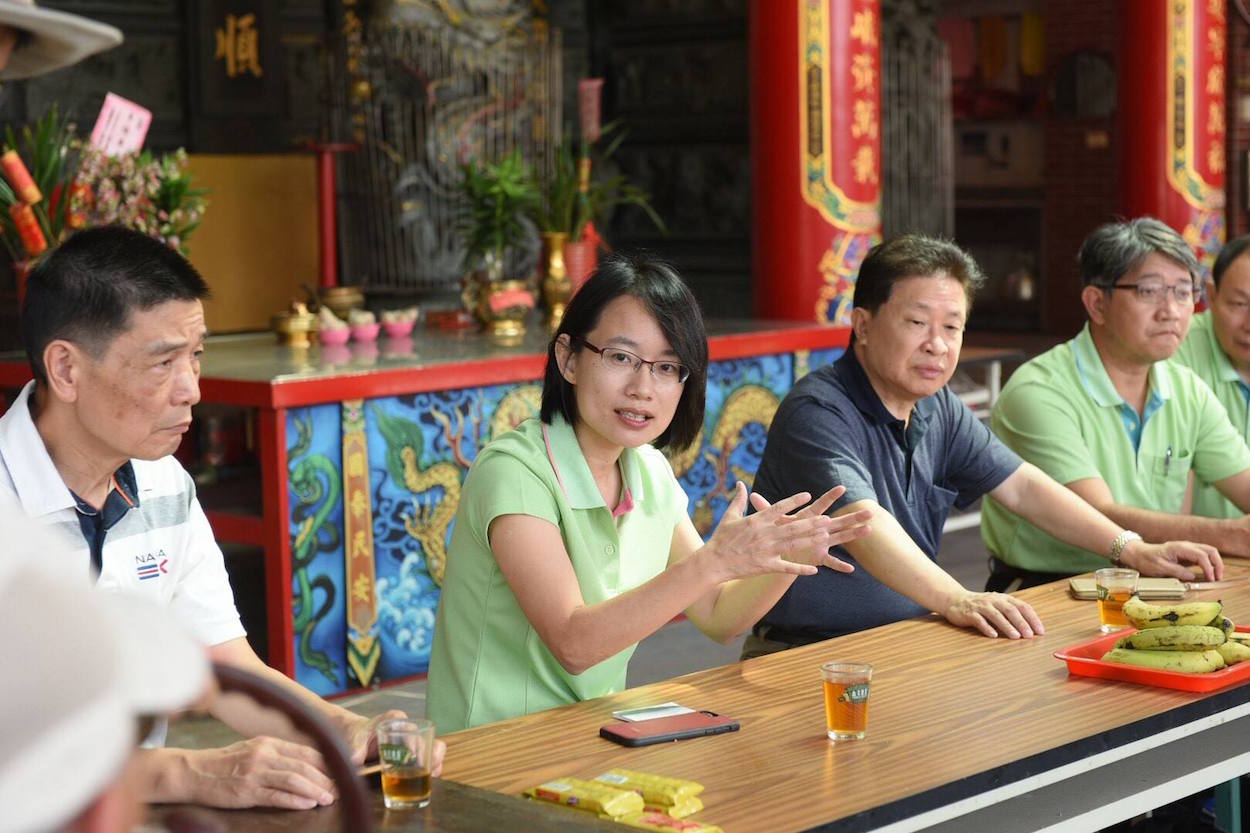 Wu Yin-ning (second from the left). Photo credit: Wu Yin-ning/Facebook
Wu Yin-ning (second from the left). Photo credit: Wu Yin-ning/Facebook
Wu is known for close relations to Taiwanese civil society, having spent many years working with the Taiwan Rural Front, and other farmers’ groups based out of southern Taiwan. Wu comes from a family known for its close ties with the pan-Green camp, as well as its intellectual production, her father being the poet and author Wu Cheng, her mother being the political commentator Zhuang Fanghua, her younger brother Wu Zhi-ning being a singer-songwriter and Taiwanese independence activist. Wu is not the first member of her family to enter politics, her cousin, Huang Sheng-huang, being the village head of Hsichou township in Changhua, and her father is a member of the DPP. These family ties have been leveraged against Wu in current accusations.
As for Wu herself, given her past history with farmer’s groups, Wu is thought of as an activist who has historically pushed for greater transparency in Taiwan’s agricultural market, particularly aiming to break up the KMT’s historical stranglehold on agricultural organizations and irrigation organizations. As an author, Wu is known for her writing on the Zapatista movement in Mexico, having travelled there to observe the movement in 2001. Wu is also known for writing on Yang Ju-men, a farmer and former elite army member who set bombs from 2003 to 2004 to protest deregulation of Taiwan’s rice market through the opening up of Taiwan’s agricultural market through free trade agreements, and the resultant effects effects on Taiwanese market—events later dramatized in The Rice Bomber. This history, too, has been leveraged on with accusations against her to claim that she is a dangerous radical.
Wu is under fire over three scandals. The first and most severe would be a 30% decrease in vegetable prices across Taiwan in March after the Taipei’s two fruit and vegetable wholesale markets saw a series of closures, with vegetable markets closed for six days in a row in late February, and three days in a row in mid-March, as well as other days. It was alleged at the time of the closures that they had been the product of a power struggle between Wu and Taipei city officials. Taipei’s two fruit and vegetable wholesale markets make up one-thirds of the total fruit and vegetable sales in Taiwan.
The second scandal would be regarding Wu buying up 9.12 tons of unsold, surplus vegetables using funds apportioned for the general manager’s sales and promotional work of TAPM and shipping them to her native Changhua, at a cost of 19,000 NT. According to Wu, she bought the vegetables because they would otherwise be thrown away and she could not bear to see go to waste, and they would have gone towards meals for the elderly and underprivileged. Wu defended the legality of her actions by stating that this was a proper use of promotional funds by TAPM, that she had the right to make such a call as TAPM’s director, seeing as Wu is allocated 300,000 NT to use as promotional funds every month, and that her actions were at no extra cost to TAPM because delivery truck drivers were willing to make the deliveries for free on their return trip to Changhua.
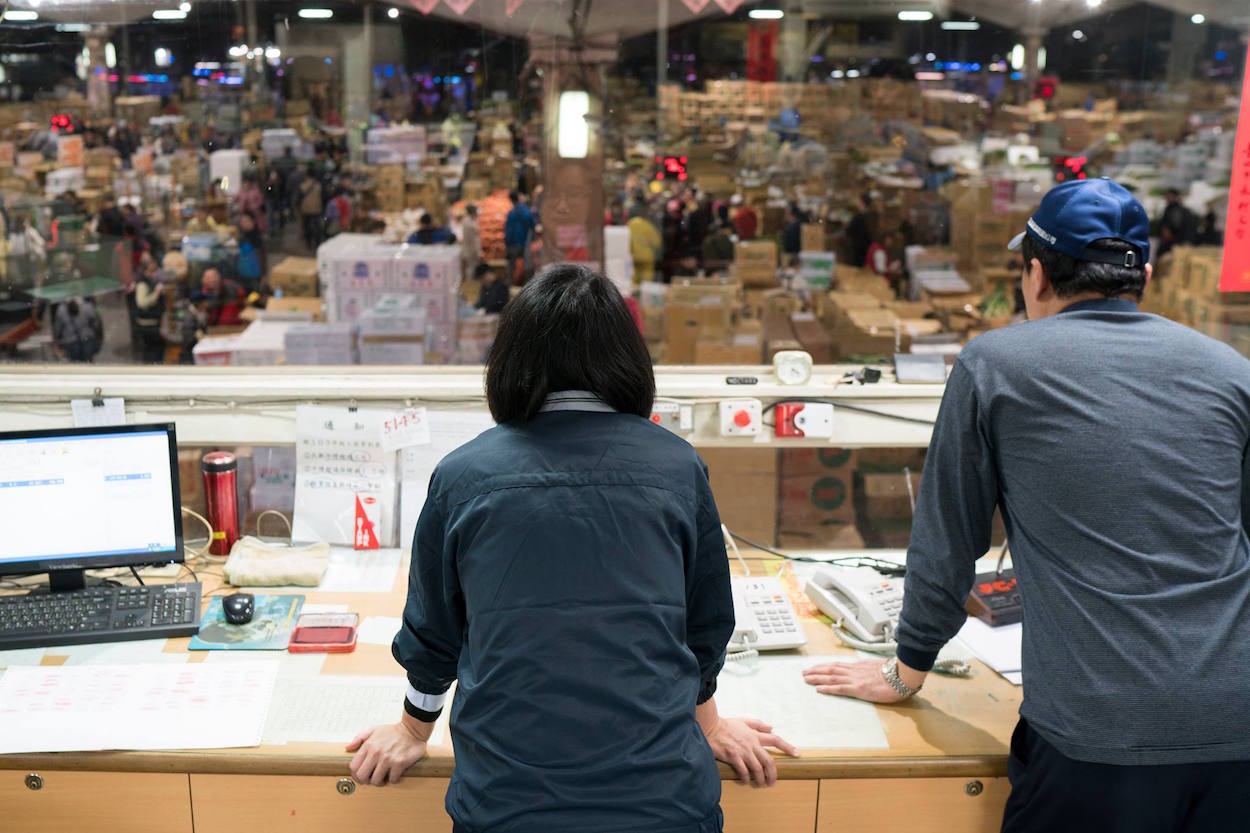 Wu (left) on the floor of a fruit and vegetable market. Photo credit: Wu Yin-ning
Wu (left) on the floor of a fruit and vegetable market. Photo credit: Wu Yin-ning
However, this raised questions of whether Wu had overstepped her duties. Namely, the TAPM is still technically a private company despite being mostly being owned by the Taipei city government and central government. This led Wu and TAPM to come under investigation by the Taipei District Prosecutors’ Office, Taipei mayor Ko Wen-je to state that the city had appointed a consultant to oversee Wu from making future mistakes, and a raid on TAPM offices by the Taipei Department of Government Ethics.
The third scandal, which followed on the heels of the second scandal, would allege that Wu had spent part of the 2.7 million NT allocated by the TAPM for promotional funds by purchasing 60 bottles of wine to send to DPP headquarters and 220,000 NT was spent to subsidize activities in Hsichou township in Changhua, where her cousin, Huang Sheng-huang, is mayor. Wu and TAPM denies having ever done this. Such claims were originally made by KMT city councilor Chen Chung-wen.
A debate has thus broken out about wrongdoing by Wu, whether Wu has simply become an unwitting victim of pan-Blue and pan-Green factionalism—frequently phrased within the media as the question of whether Wu is a “white rabbit”—or whether Wu was targeted for attempts to reform the TAPM.
The previous head of the TAPM, Han Kuo-yu (韓國瑜), was a former KMT legislator, and he resigned his post as TAPM head to pursue a failed bid to be the KMT’s Taipei next chair, though later winning a successful bid to be the KMT’s Kaohsiung mayoral candidate. Wu emphasized when taking office that, unlike Han, she intended to run the TAPM along the lines of being part of the government due to it being primarily owned by the Taipei city government and central government, and that she also differed from Han in having a more local orientation, intending to focus less on building ties internationally as Han did. This was particularly with regards to her desire to not continue to pursuing Ma administration policies aimed at building closer economic ties with China, for fear of this becoming an avenue for political influence by China.
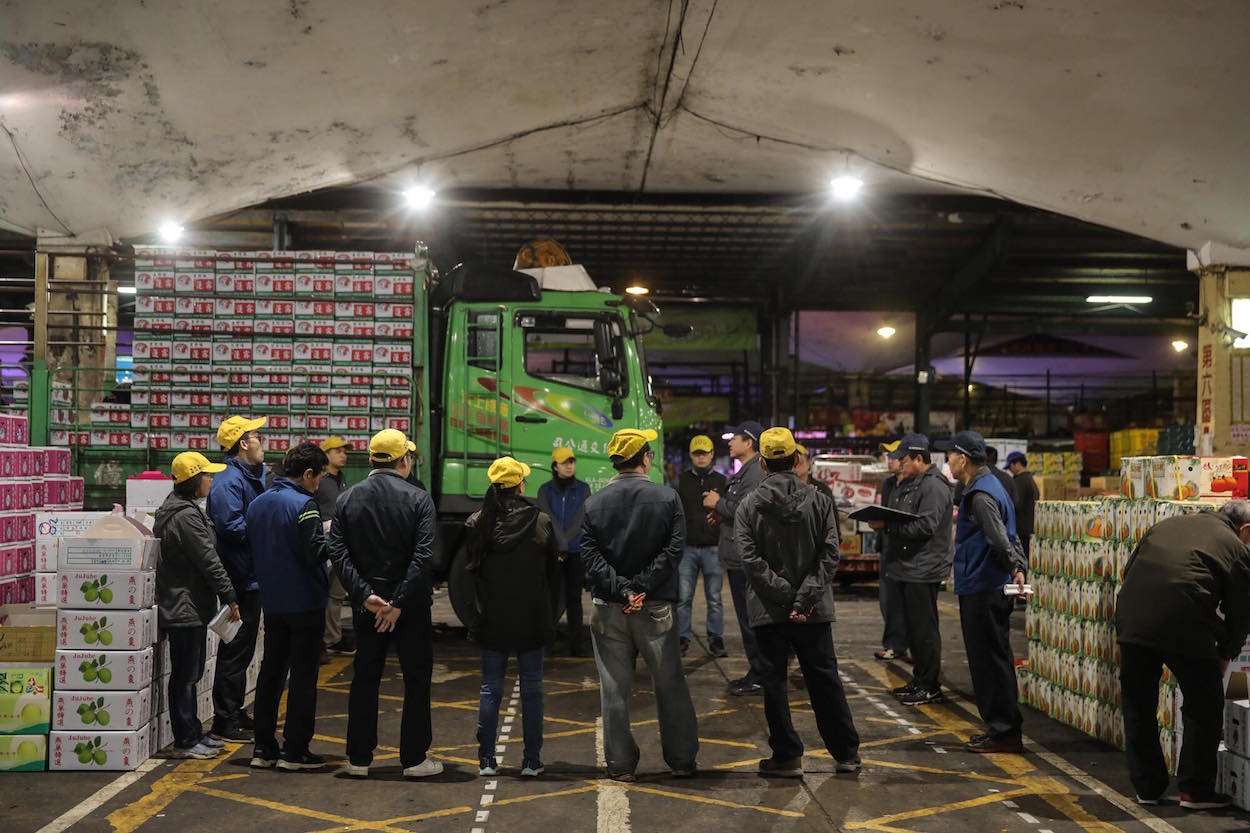 Photo credit: Wu Yin-ning/Facebook
Photo credit: Wu Yin-ning/Facebook
At present, the DPP has notably engaged in attempts to nationalize irrigation organizations, seeing as they have long served as an avenue for the KMT to maintain clientelist networks and threaten farmers if they do not comply with the KMT’s political will. Wu’s appointment was seen by many as attempts to do the same for agricultural associations, which also have been historically used by the KMT to control Taiwanese farmers. A number of Wu’s prominent critics are Taipei city councillors who are members of the KMT, including Chen Chung-wen and Wang Hsin-yi, a political firebrand known for frequently making baseless accusations against pan-Green political figures.
Many perceive Wu to have become a casualty of her attempts to engage in reform, then. At the same time, some do question whether Wu has committed wrongdoing, or whether some of her actions were to benefit family members that are politicians in Changhua, particularly given Taiwanese civil society’s animus against “second-generation politicians”, political dynasties, and entrenched nepotism in Taiwanese politics—whether pan-Blue or pan-Green.
On the other hand, many questions abound regarding Ko Wen-je’s role in the political controversies facing Wu. Ko criticized Wu as “too young” and politically “inexperienced” in May and is seen as responsible for the raids on TAPM offices by the Taipei Department of Government Ethics, which notably were timed to occur while Ko and Wu were both present at the same press conference.
As such, some have criticized Ko for being so harsh on Wu when he seemed to have been laxer on Han, during his tenure as TAPM head. The DPP’s mayoral candidate for 2018 mayoral elections, Pasuya Yao, has accused Ko of leaking information to the KMT to damage Wu’s reputation.
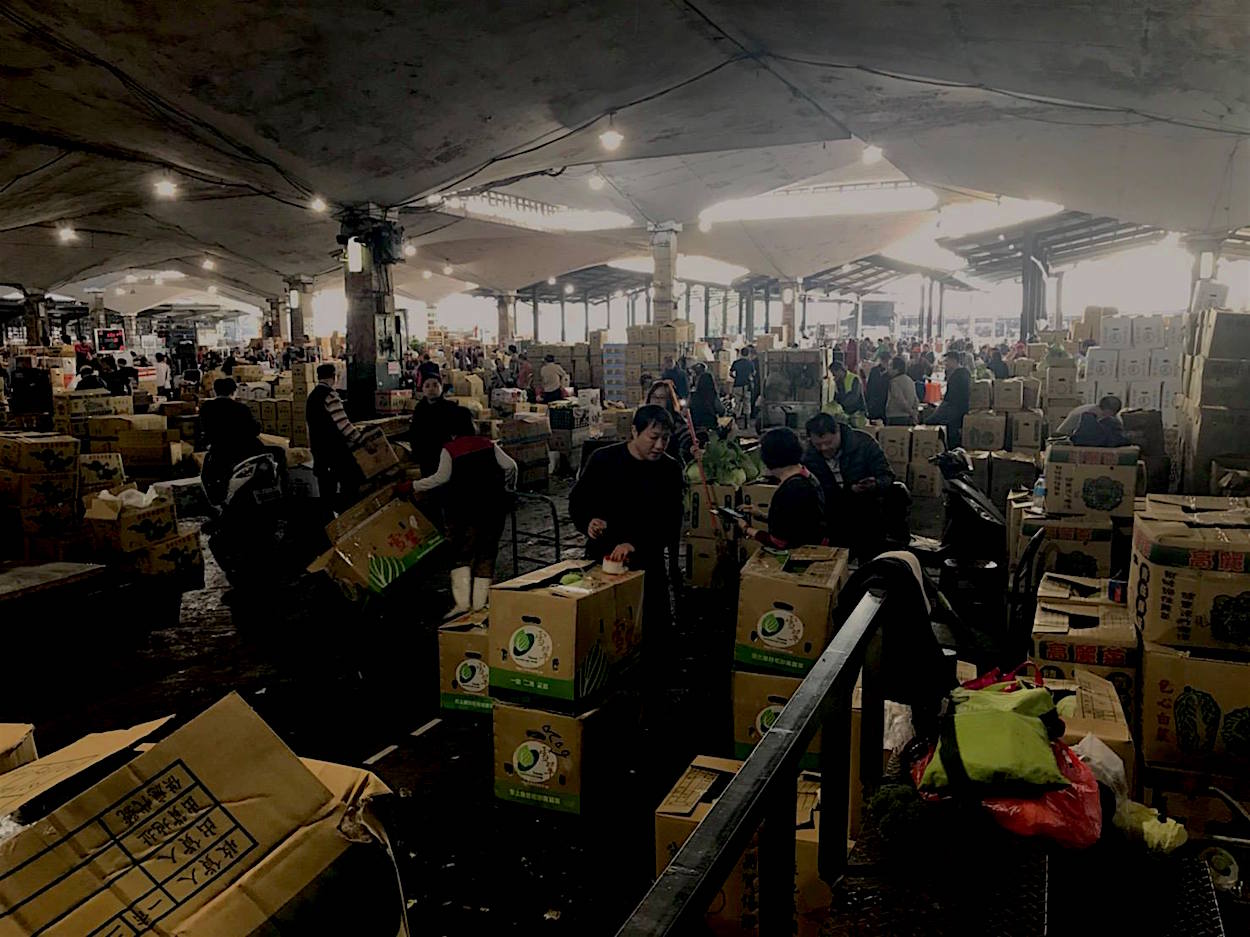 Photo credit: Wu Yin-ning/Facebook
Photo credit: Wu Yin-ning/Facebook
Among DPP politicians, Tsai Ing-Wen is read as having taken a stance to defend Wu. Some perceive this because if Wu is viewed as incompetent, this will give political ammunition to Han Kuo-yu in his run for mayor of Kaohsiung.
Ko has recently changed tack to defend Wu as “good”, and that, like himself, as someone who entered politics without any previous political experience, Wu has become uncomfortably trapped between the pan-Blue and pan-Green camps. This is read by some as Ko balancing between the pan-Blue and pan-Green camps in the lead-up to 2018 Taipei mayoral elections later this year, when Ko is seeking reelection. It is to be remembered that Taipei historically leans pan-Blue. But although the DPP declined to support Ko this year in Taipei mayoral elections, Ko seems to still fear that without pan-Green political support, he will not be elected. Ko may be hoping to appeal to pan-Green voters with his change of position on Wu, even if is already certain that he will not receive the DPP’s endorsement this year. Nevertheless, Wu would still be summoned for questioning by the Taipei District Prosecutors’ Office yesterday.
Regardless of the political outcome of these controversies, or where truth lies, a number of things can be observed from the scandal. First, one observes that many of the accusations made against Wu by her critics have been tinged with sexism. This should not be surprising, considering that much of farmer politics and labor politics in Taiwan is deeply rooted with sexist politics.
Secondly, one observes the murky relations of partially state-owned enterprises in Taiwan, seeing as TAPM came under investigation by the Taipei city government despite being partially owned by the Taipei city government. Likewise, given the odd division of powers between the Taipei city government and central government in TAPM’s management, it may not be a mistake to read what goes on behind the scenes of TAPM as a power struggle between the Taipei city government and central government. In general, it is not very surprising that scandal occurs frequently in many partially state-owned enterprises in Taiwan, although what we observes presently may be an attempt to frame up political persecution in the form of such a scandal by the pan-Blue camp. This institutional framework would make it easy for individuals holding politically sensitive positions such as Wu becoming easily targeted.
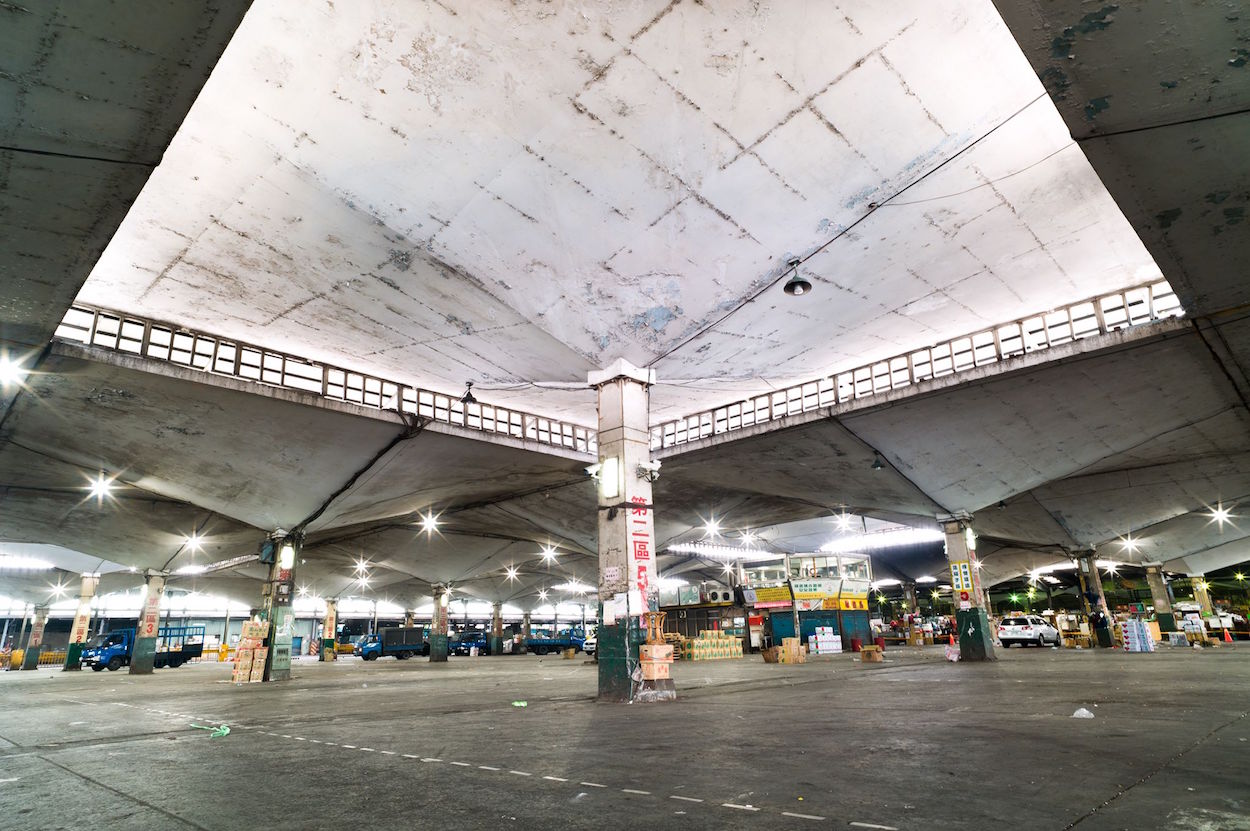 Photo credit: Wu Yin-ning/Facebook
Photo credit: Wu Yin-ning/Facebook
One does not expect these problems to go away anytime soon, regardless of the outcome of the scandal. And if Wu simply ends up being scapegoated, as is very likely to happen, one generally expects that the KMT’s stranglehold over farmers’ associations will not be broken through the Tsai administration or any other administration in the near future. In the end, then, the scandal may be to the loss of farmers in Taiwan, and KMT power will be unbroken.

